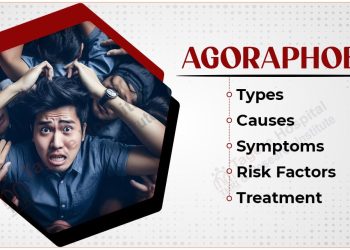The complications of male menopause can have a profound impact on various aspects of a man’s life—physically, emotionally, socially, and even professionally. Also known as andropause or late-onset hypogonadism, this hormonal transition doesn’t only affect testosterone levels—it can influence cardiovascular health, sexual well-being, bone density, mood, and quality of life.
These complications often develop slowly, making them hard to detect at first. But over time, they can seriously disrupt daily functioning. This makes early diagnosis and consistent care essential for managing male menopause effectively.
Sexual Health and Fertility Problems
Many men first notice changes in sexual health. Falling testosterone levels disrupt the body’s sexual response and affect physical performance.
Men may experience:
- Trouble getting or keeping an erection
- Reduced sex drive
- Lower semen volume
- Less satisfying orgasms
- Decreased fertility
For men hoping to maintain fertility, testosterone therapy might not be the best choice. It can lower sperm production by disrupting natural hormone cycles. Instead, doctors may recommend options like hCG injections or SERMs (selective oestrogen receptor modulators), which boost testosterone without harming sperm count.
Mental and Emotional Health Effects
The complications of male menopause go far beyond the body. Emotional and mental health can suffer when hormone levels shift. These changes often affect how the brain manages mood and focus.
Common issues include:
- Depression and anxiety
- Mood swings or anger
- Memory lapses
- Poor concentration
- Loss of motivation
- Social withdrawal
Because these symptoms overlap with clinical depression, they can go unrecognised or misdiagnosed. Many men also hesitate to seek help. Support from therapists, partners, or peer groups can make a big difference in recovery.
Risks to Heart Health
Low testosterone can also raise the risk of heart disease. The relationship between testosterone and the heart is complex, but research links low levels to:
- Increased belly fat
- Higher LDL (“bad”) cholesterol
- Insulin resistance
- High blood pressure
- Hardened arteries (atherosclerosis)
These issues may lead to serious conditions like heart attacks, strokes, and diabetes. On the other hand, using too much testosterone—especially without medical supervision—can also cause heart problems. Monitoring testosterone therapy closely is crucial for safety.
Bone Loss and Fracture Risk
Another complication of male menopause is weaker bones. Testosterone helps keep bones strong, and without it, men face a higher chance of developing osteoporosis.
This can lead to:
- Hip or spine fractures
- Back pain from collapsed vertebrae
- Wrist and arm injuries
- Height loss or hunched posture
Men often assume osteoporosis is a women’s issue, but it affects them too—especially after age 50. Regular bone scans, resistance training, and calcium plus vitamin D supplements can all help protect bone health.
Metabolic Changes and Muscle Loss
As testosterone drops, the body tends to lose muscle and gain fat. This combination can lead to fatigue and poor physical performance.
Men may notice:
- Muscle weakness
- Less endurance
- More belly fat
- Lower energy
Abdominal fat contributes to more hormonal imbalance. It increases oestrogen and insulin resistance, making symptoms worse. Strength training and better nutrition can improve muscle mass and balance hormones naturally.
Metabolic Syndrome and Related Conditions
One of the more dangerous complications of male menopause is metabolic syndrome. This group of conditions raises the risk of diabetes, heart disease, and stroke. It includes:
- High blood pressure
- High blood sugar
- Abnormal cholesterol levels
- Excess belly fat
Testosterone helps regulate insulin and fat metabolism. When levels fall, these risk factors often rise. A healthier diet, regular exercise, and sometimes medications can help control this syndrome and protect long-term health.
Sleep and Immune System Disruption
Sleep problems are common during male menopause. Poor sleep makes other symptoms worse and slows down recovery.
Symptoms include:
- Insomnia
- Night sweats
- Frequent waking
- Daytime sleepiness
- Worsened sleep apnoea
Lack of rest lowers testosterone even more and may weaken the immune system. Some men also become more prone to infections or chronic inflammation. Sleep studies, CPAP machines, and healthy habits can improve sleep and support the immune system.
Social and Relationship Challenges
The emotional and physical changes of male menopause can strain relationships and affect social life. Men may become withdrawn, moody, or insecure—leading to misunderstanding and tension at home or work.
Other effects might include:
- Less intimacy or sexual connection
- Communication breakdowns
- Loss of self-confidence
- Difficulty concentrating at work
- Social isolation
Couples therapy, honest conversations, and support from friends or coworkers can help men stay connected and emotionally stable.
Conclusion
The complications of male menopause reach into nearly every area of life. From fertility problems and heart disease to depression and broken relationships, these issues can seriously affect a man’s quality of life.
But male menopause is manageable. With early diagnosis, medical support, and healthy lifestyle changes, many men overcome these complications. By staying informed and proactive, men can navigate this midlife transition with strength and confidence.


